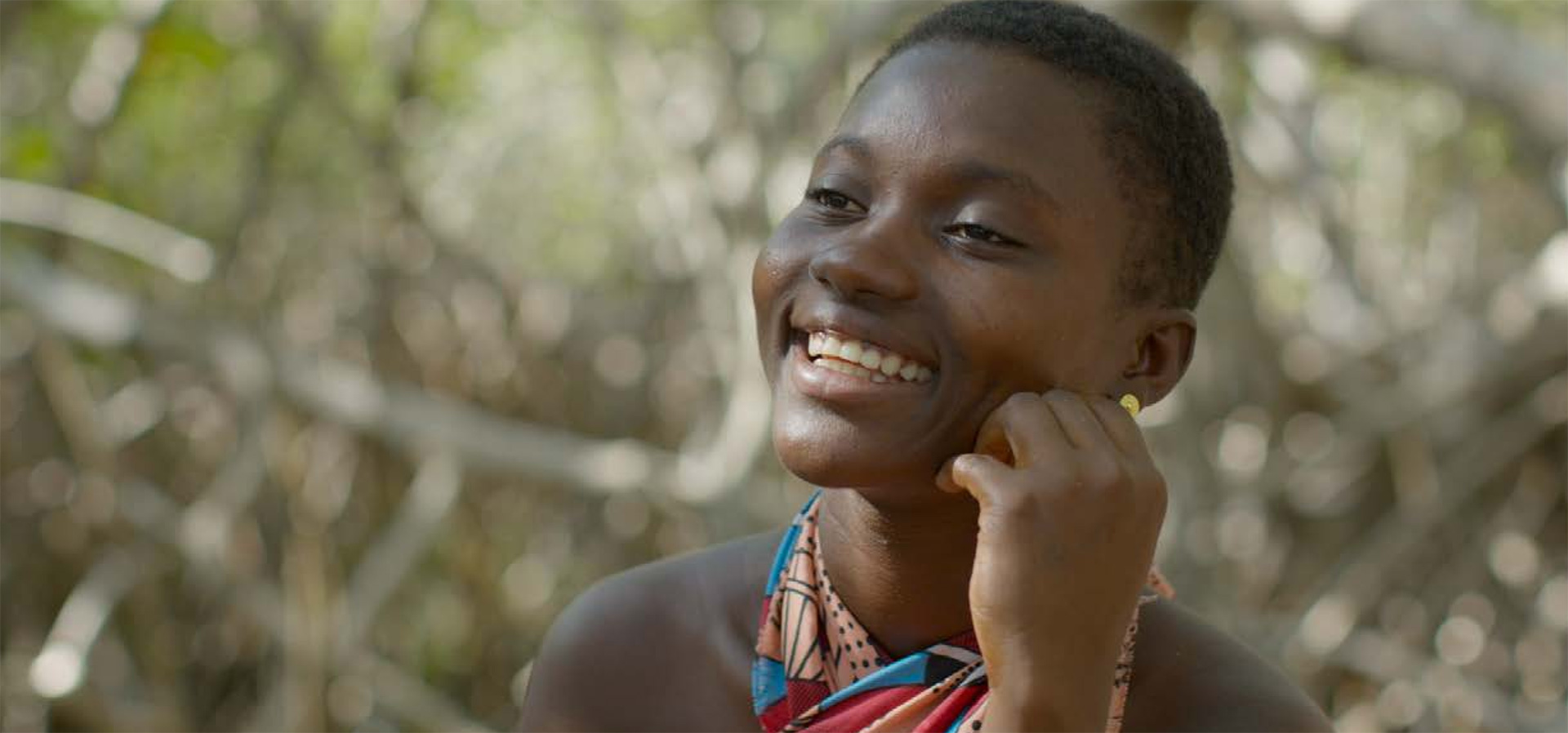Living on the beaches of the Atlantic Ocean would be a dream to many. Not only is the view beautiful, but one’s ability to live a simple life can often be a welcome reprieve from the hustle and bustle of a city and its potential for disaster through culture shock and excess. The unfortunate truth of the world in which we currently live, however, is that nothing is simple anymore. Climate change has rendered coastal towns like the one in which Aya (Marie-Josée Degny Kokora) resides with her mother and baby brother almost unhabitable. The tide has moved so far inland that a cemetery that was once a two-hour walk from the shoreline is suddenly being destroyed by its unyielding pull. Not even their ancestors are safe.
Director Simon Coulibaly Gillard enters this reality through his film Aya by making Kokora the face of impoverished coastal residents’ impossible struggle. He utilizes locals to tell their story as a hybrid fictional drama/documentary (even gaining funding via both creative avenues) that allows us to witness a forced exodus devoid of governmental help. Families with barely enough money to survive off coconuts and fish have recognized that the Lahou they remembered is gone—physically and spiritually. Some remain staunch in their desire to stay despite the ocean’s threat while others dismantle their homes to relocate farther inland. And they all must weigh the reality that the bodies of their loved ones don’t have that choice. Their exhumation becomes yet another cost this desperate community cannot afford.
One could say the living don’t have that choice either—especially adults with children. Aya’s mother is in debt. Every time she comes home, Aya asks if she’s brought anything edible with her because hunger has become a constant part of their daily routine. It’s doesn’t therefore matter if this young girl wishes to, so to speak, ride out the storm. Aya has the luxury to dream and the room to be carefree while shirking the responsibilities her mother has asked her to perform. She can spend a whole day roaming the beaches with her friend Junior and return home with a smile in the belief that she can catch up on whatever she missed tomorrow, despite her mother wondering if they’ll be able to survive that long.
What should be a time of joy for Aya is thus rendered as an unavoidably trying period of upheaval. The world as she’s known it is dissolving around her and the border of that dissolution has compressed to the point where she can no longer pretend that she’s exempt. First goes the food supply. Next goes the time she thought she had to have fun. Then go the acquaintances who have no option but to pack up and leave. Then it’s friends who can’t even say goodbye. The optimism that shielded Aya from the pain of this truth tries its damnedest to make it through, but her mother eventually must draw a line in the sand by ensuring there can be no mistaking her demands with past games.
The moment Aya acknowledges her fate is heartbreaking because we can tell that easy smile is no longer waiting behind her eyes to return. It’s gone. The simple life she always wanted is gone and it cannot be replaced. We assume her life will reset once her distance from that idyllic shore grows, but the present pain is too real to simply forget. This is a lifestyle—a culture—crumbling before our eyes through no fault of those forced to bear its burden. The water is reclaiming that which we can assume was protected by those on-screen while others, thousands of miles away, decided their actions didn’t matter. Not only did those people destroy Aya’s home, but they’ve now absorbed her into the lifestyle that lit the match.
That’s the real tragedy no matter how bittersweet Gillard’s final shot may prove as a connection back to what once was. The way of life that’s displaced whole communities has won not only because it still refuses to fear the consequences, but also in how its indifference has insulated its own communities as that which the displaced must assimilate into. More than a coming-of-age film for Aya, this tale depicts her loss of innocence. A stolen kiss amongst nature that brings a smile to our faces in its purity of intent and sweetness gets lost to the flashing lights of a dance club rendering the former into a distant fantasy that’s now forever out of reach. She became cognizant of her existence just as it met its demise.
Aya also comes from a place of preservation, though, simply because it dares to capture the beauty of what was. Gillard films men from the village as they sing while pulling ropes affixed to fishing boats. He showcases the little traditions these people uphold whether smoking fish, dancing, or even just remembering the past. One of my favorite moments in the whole is the exhumation of Aya’s father’s remains and how the man digging up the bones prays for forgiveness in his task to disturb today’s slumber for tomorrow’s safety. Those scenes of reverence, paired with Kokora’s infectious appetite for life, give us a window into a world on the brink of extinction. And anyone who says Aya is better off without it wasn’t paying attention.
Aya screened at the Cannes Film Festival.

